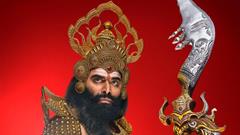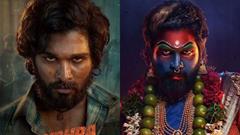50 years on, Ghatak's masterpiece has to shine through clouds
Mumbai, Sep 3 (IANS) Legendary filmmaker Ritwik Ghatak's 'Meghe Dhaka Tara' completes 50 years this year. Sadly, despite critics globally considering it to be one of a handful of most important films from India, the excitement is not palpable.
Published: Friday,Sep 03, 2010 10:29 AM GMT-06:00
Mumbai, Sep 3 (IANS) Legendary filmmaker Ritwik Ghatak's 'Meghe Dhaka Tara' completes 50 years this year. Sadly, despite critics globally considering it to be one of a handful of most important films from India, the excitement is not palpable.
'The only retrospective of the film happened in Lincoln Centre in New York and another screening in Nandan in Kolkata,' Ritaban Ghatak, Ritwik's son who is a filmmaker himself, told IANS.
Many filmmakers and scholars say the haunting existential cry of the Bengali film's protagonist Neeta - 'Dada ami banchte chai (Brother I want to live)' - is relevant even today, but few want to hear it.
Set in a refugee camp, the film - literally meaning The Cloud Capped Star - shows the repercussions of partition through an impoverished genteel Hindu family. Based on Shaktipada Rajguru's novel by the same name, it was released in 1960.
The film starred big names of Bengali cinema. The cast included Supriya Choudhury, Anil Chatterjee ad also Gita Ghatak, Bijan Bhattacharya, Niranjan Roy and Gyanesh Mukherjee.
'First of all 'Meghe Dhaka Tara' is one of the first films on refugees and their problems,' says journalist and film scholar Shoma Chaudhury.
'Secondly, the female protagonist is one of the rarest characters in cinema history as she works not with the intention of becoming independent or to be liberated from a patriarchal society, but to sustain her extended family.'
Ghatak was a cinematic master who never got his due during his lifetime. But spurred by the efforts of Film and Television Institute of India (FTII) students who studied under him - like Mani Kaul and Kumar Shahani - his stature has been resurrected after death in 1976.
Today some say he is the greatest director India has produced, with 'Meghe Dhaka Tara' widely considered his best work.
Ashish Rajadhyaksha, an eminent film historian, believes accessibility to his films has not resulted in an increased understanding.
'Most people see Ghatak's work as melodramatic. They have no clue about his technique, the specific politics in the film or even the geographic milieu that is screaming from it,' he says.
Rajadhyaksha was one of the first to articulate Ghatak's cinematic style in his book 'Ritwik Ghatak: A Return to the Epic'. He co-authored a second book on the director with Amrit Gangar, 'Arguments-Stories'.
Says Gangar: 'Ritwik Ghatak's oeuvre is becoming prophetic as we are growing as a nation.'
Chowdhury and Gangar say 'Meghe Dhaka Tara' is one of the rare examples in the world where the movie towers over an otherwise average novel that it was based on.
'Pained by partition, Ghatak, through his works, kept reminding us of this avoidable history. Fifty years of the film induces us to reflect upon the divisions emerging from the inequities and oppressive powers at play,' Gangar told IANS.
'The existential cry of Neeta echoes the cry of millions of men and women in India today. But somewhere, we have lost our ability to hear that cry, perhaps we don't even care.
'Meghe Dhaka Tara' remains ever so contemporary as it would keep questioning the state of our being, our increasingly self-centred and fragmentary being.'
Chowdhury agrees as she reminds us of the allegory of Neeta's death through tuberculosis.
'TB back then was considered to be a disease of consumption. But it is not really TB that kills Neeta. She is instead consumed by her self-centred family which itself is trapped in its circumstances. The film shows a manifestation of violence rarely seen in cinema.'
Film historian Subhash Chheda, who is restoring another partition masterpiece, M.S. Sathyu's 'Garm Hava', states that it is 'Meghe Dhaka Tara' that inspired him to get into restoring cinema.
'It is a bright sun of cinema that no amount of mediocre cinematic clouds in the world can hide.'
Ghatak, originally from what is now Bangladesh, considered himself an eternal refugee. He once described his restive mental state in these words: 'My feet are not on my soil. That is my obstacle. How shall I find another soil and when? Because I have to return to my mother's womb to seek the source of this archetypal idiom.'
(Satyen K. Bordoloi can be contacted at [email protected])
Your reaction
 Nice
Nice Awesome
Awesome Loved
Loved LOL
LOL OMG
OMG Cry
Cry Fail
Fail

















Comments (0)